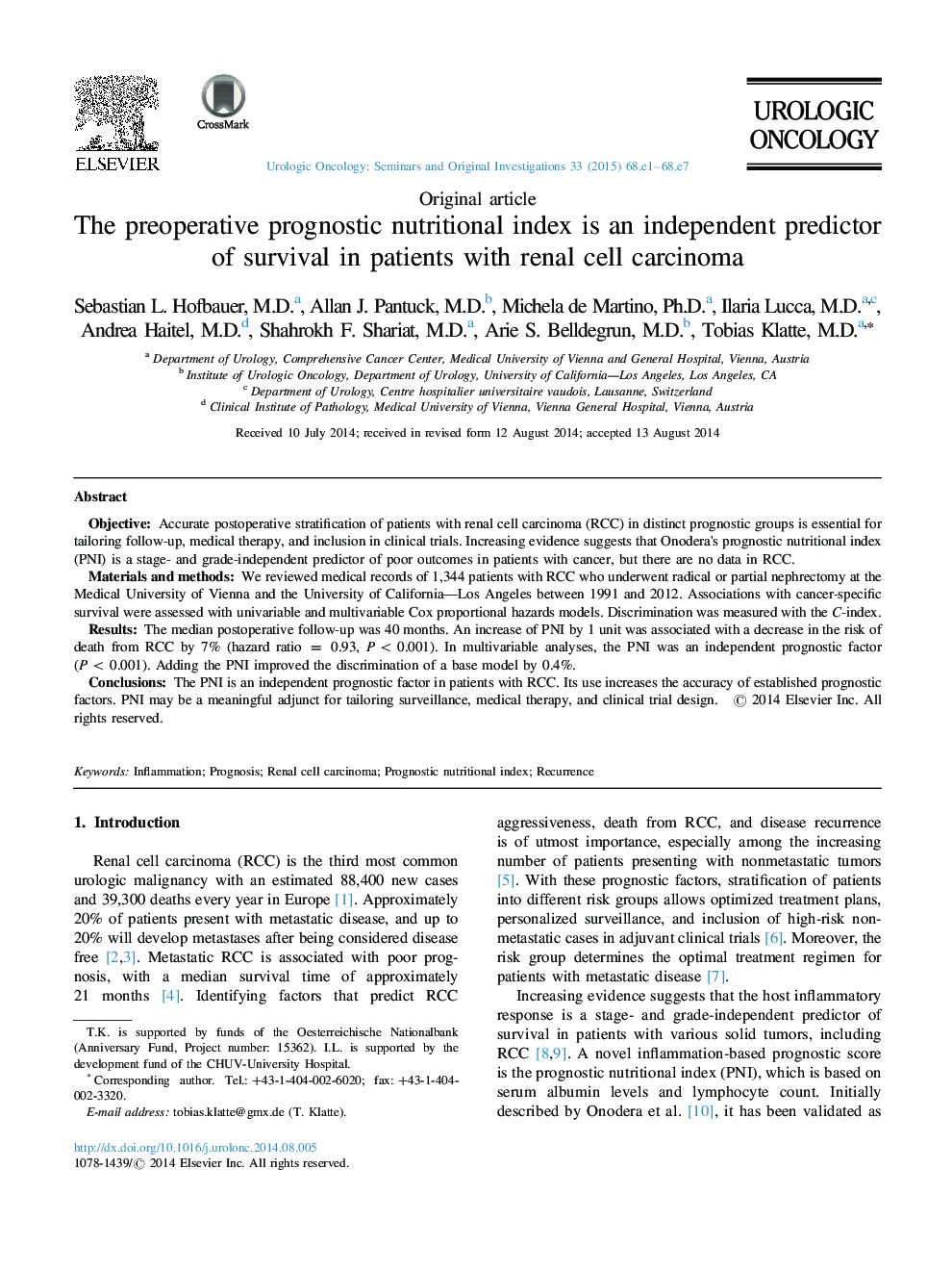| Article ID | Journal | Published Year | Pages | File Type |
|---|---|---|---|---|
| 6194121 | Urologic Oncology: Seminars and Original Investigations | 2015 | 7 Pages |
ObjectiveAccurate postoperative stratification of patients with renal cell carcinoma (RCC) in distinct prognostic groups is essential for tailoring follow-up, medical therapy, and inclusion in clinical trials. Increasing evidence suggests that Onodera׳s prognostic nutritional index (PNI) is a stage- and grade-independent predictor of poor outcomes in patients with cancer, but there are no data in RCC.Materials and methodsWe reviewed medical records of 1,344 patients with RCC who underwent radical or partial nephrectomy at the Medical University of Vienna and the University of California-Los Angeles between 1991 and 2012. Associations with cancer-specific survival were assessed with univariable and multivariable Cox proportional hazards models. Discrimination was measured with the C-index.ResultsThe median postoperative follow-up was 40 months. An increase of PNI by 1 unit was associated with a decrease in the risk of death from RCC by 7% (hazard ratio = 0.93, P<0.001). In multivariable analyses, the PNI was an independent prognostic factor (P<0.001). Adding the PNI improved the discrimination of a base model by 0.4%.ConclusionsThe PNI is an independent prognostic factor in patients with RCC. Its use increases the accuracy of established prognostic factors. PNI may be a meaningful adjunct for tailoring surveillance, medical therapy, and clinical trial design.
